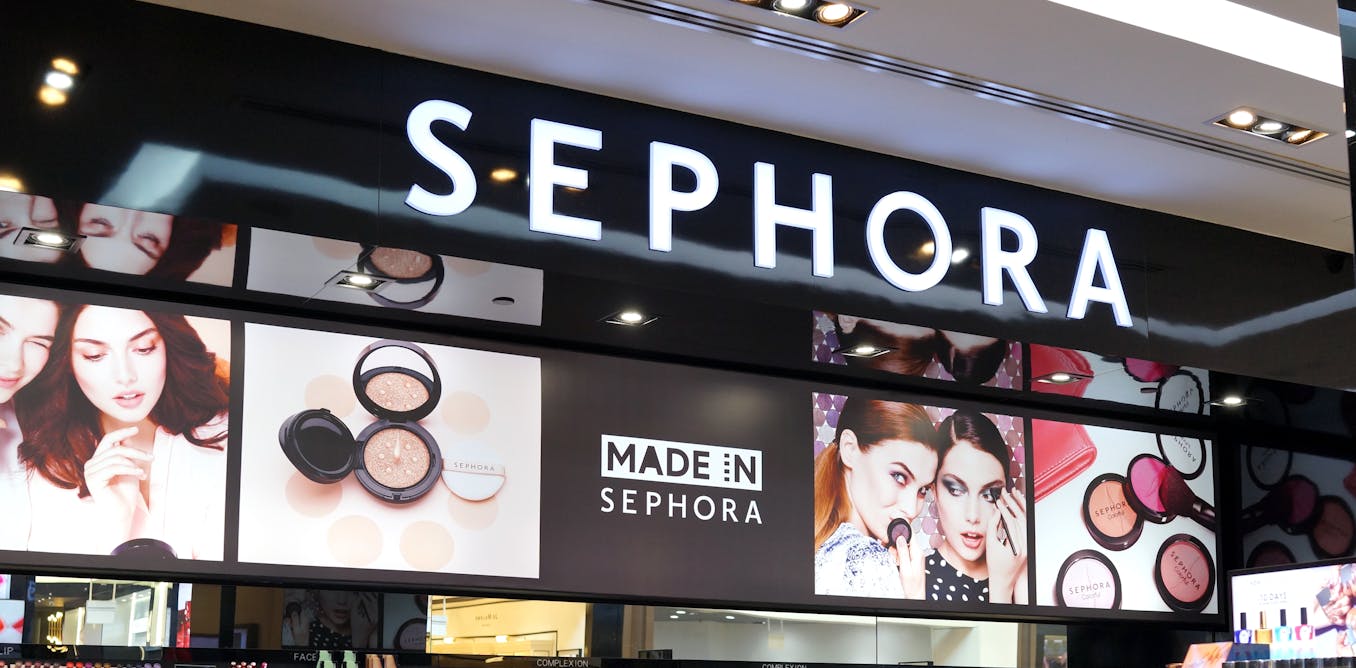Here is the rewritten content in HTML format:
Beauty giant Sephora has returned to the UK after nearly 20 years – by betting on AI and gen Z
A comeback to the UK market
Sephora, the French multinational retailer of personal care and beauty products, has made a comeback to the UK after an 18-year hiatus. The company’s return to the UK market with stores in London and plans for further outlets outside the capital, raises questions about what has changed in the beauty industry and within Sephora itself to prompt the move.
A changed beauty landscape
Back in 2005, Sephora decided to close its UK stores due to market challenges and fierce competition from homegrown retailers like Boots and Superdrug. However, the beauty landscape has changed significantly since then, with the rise of e-commerce, social media influencers, and a growing demand for premium and niche beauty products.
A boom in the beauty industry
Beauty has witnessed a boom in recent years, with consumers increasingly willing to spend more on high-end and specialist products. Sephora’s unique positioning as a one-stop-shop for a wide range of brands, from established names like Dior, Lancôme, and Estée Lauder to trendy indie labels such as Drunk Elephant, The Ordinary, and Fenty Beauty, could give it a competitive edge in the UK market.
The power of AI
One of the key factors that may have influenced Sephora’s decision to re-enter the UK market is the growing power of artificial intelligence (AI) in the beauty industry. AI-powered tools and technologies are revolutionising the way consumers discover, try, and purchase beauty products.
Sephora has been at the forefront of this trend, leveraging AI to offer personalised skincare routines, virtual makeup try-on, and product recommendations based on individual preferences and skin types. By harnessing the power of AI, Sephora may be able to provide a more engaging and tailored shopping experience to its UK customers.
Gen Z and the beauty market
Sephora’s return comes at a time when gen Z is emerging as a significant force in the beauty market. Gen Z consumers are seen as loving experimentation, embracing diversity, and seeking authentic and sustainable brands.
Sephora’s wide range of products, its inclusive marketing, and its focus on “clean beauty” – with ranges that avoid some potentially harmful ingredients like parabens and mineral oils – could resonate well with this demographic. It has also pledged to dedicate 15% of its shelf space to products from black-owned brands.
Conclusion
Sephora’s return to the UK market after nearly 20 years is a bold move that reflects the changing dynamics of the beauty industry. The rise of e-commerce, the power of AI, the demand for premium beauty products, and the growing influence of gen Z and gen Alpha have likely contributed to the decision. While challenges remain, Sephora’s unique positioning, technological capabilities, and financial backing from its owner, the luxury goods giant LVMH, could help it navigate the competitive UK beauty market.
FAQs
Q: Why did Sephora leave the UK market in the first place?
A: Sephora left the UK market in 2005 due to market challenges and fierce competition from homegrown retailers like Boots and Superdrug.
Q: What has changed in the beauty industry since Sephora left the UK market?
A: The beauty landscape has changed significantly since then, with the rise of e-commerce, social media influencers, and a growing demand for premium and niche beauty products.
Q: How does Sephora plan to differentiate itself in the UK market?
A: Sephora plans to differentiate itself through its product offerings, in-store experience, and customer service, leveraging its unique positioning as a one-stop-shop for a wide range of brands.
Q: What is Sephora’s strategy for appealing to gen Z consumers?
A: Sephora’s strategy for appealing to gen Z consumers includes its inclusive marketing, focus on “clean beauty,” and pledge to dedicate 15% of its shelf space to products from black-owned brands.
Q: What is Sephora’s plan for expanding its global footprint?
A: Sephora has been opening new stores in various regions, including China, Russia, and the Middle East, as part of its global growth strategy.






